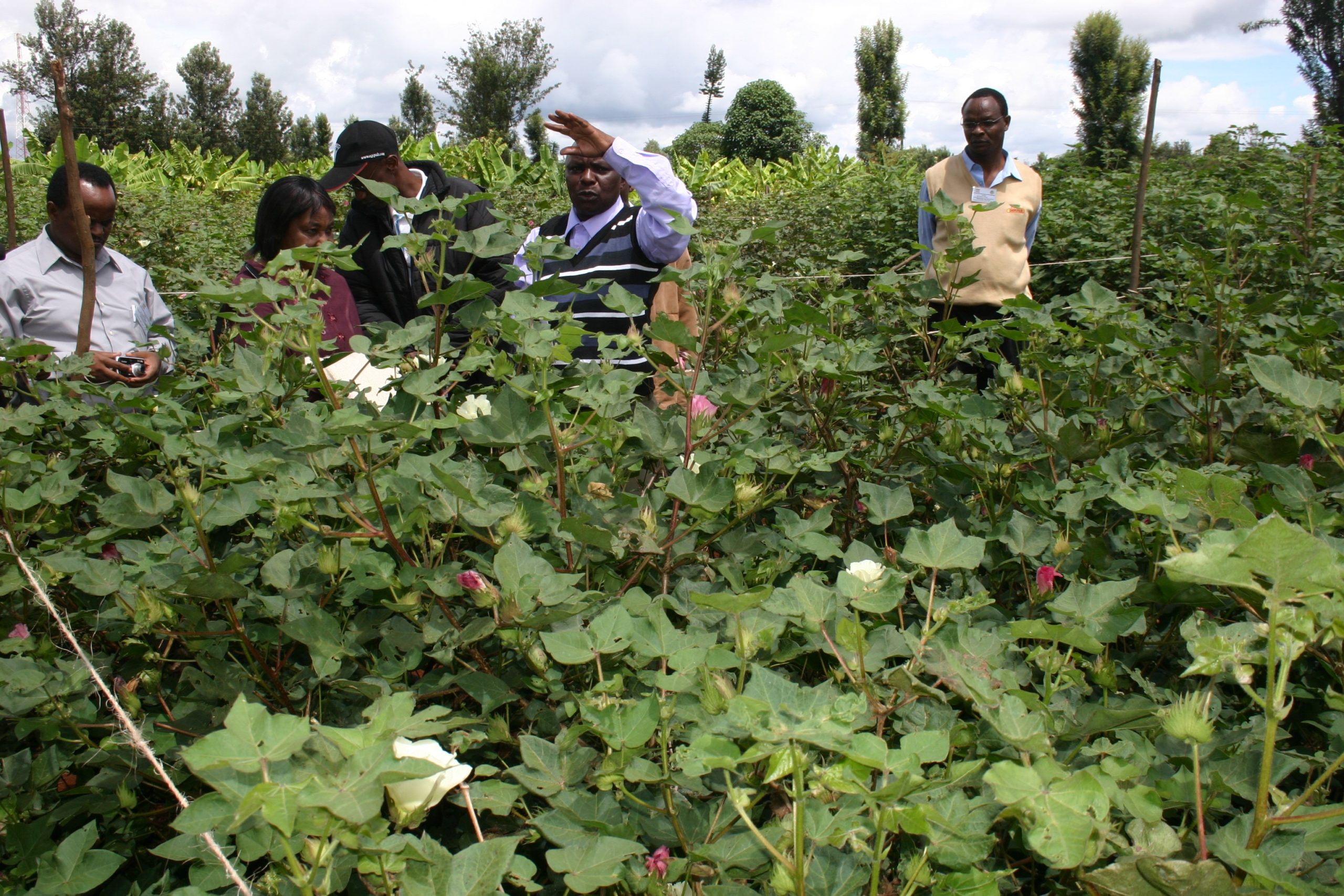By Wahinya Henry
Nairobi, Kenya:BT cotton principal researcher Dr. Charles N. Waturu has been celebrated by experts in the science of biotechnology for gifting the country a crop that is resistant to the African bollworm.
Fellow researchers drawn from the African Continent paid tribute to Dr. Waturu during the Africa Biennial Bio-sciences Communication Symposium (ABBC) 2021 for the breakthrough that initially appeared like an insurmountable task.

The now-retired director of the horticulture research institute at Kenya Agricultural and Livestock Research Organization (KALRO) in Thika, Kiambu County, for two decades immersed himself in research determined to come to the rescue of cotton farmers.
Centre director of the Nairobi-based International Service for the Acquisition of Agri-biotech Applications (ISAAA), Dr. Margret Karembu who hosted the symposium hailed the researcher whose work resulted in a variety to tame the vicious cotton pest.
Dr. Waturu embarked on the journey at a time when the pest caused huge losses to farmers rendering them poor and desolate.
“Indeed with these challenges, more than 80 percent of cotton farmers abandoned farming over the last two decades,” said Dr. Karembu.
His research spanning two decades eventually led to the commercialization of BT cotton in Kenya and it is now in the hands of farmers.
According to Dr. Karembu, the cotton variety boosts farmers’ incomes five-fold leading to improved livelihoods and boosting the country’s economy through the textile and apparel industry.
Five other leading biotechnology scientists from the continent were also honored for their outstanding research outcomes including Prof. Mohammad Ishiyaku.
The executive director for Agricultural Research at Ahamadu Bellow University was the lead scientist in the research and development of BT Cowpea in Nigeria.
Similarly, Prof. Marian Dorcas Quain from Ghana earned accolades for her research into the application of recombinant gene technology for the crop.














